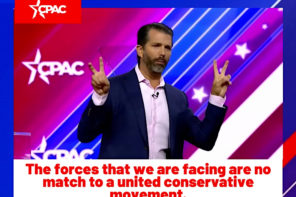While much of the religious liberty oxygen has been absorbed by Jeff Sessions’ announcement of a Religious Liberty Task Force at the Dept. of Justice, the State Department celebrated the launch of its own Ministerial to Advance Religious Freedom, an effort that Secretary of State Mike Pompeo hailed as a way to “discuss challenges, identify concrete ways to combat religious persecution and discrimination, and ensure greater respect for religious freedom for all.”
Given the Trump Administration’s recent actions on defining religious freedom, it’s probably laughable to think that Pompeo meant that the United States was embracing pluralism as a pillar of its foreign policy. Instead, it’s probably more appropriate to think of this latest rollout as an extension of the administration’s narrative—driven in large part by Vice President Mike Pence—that religious freedom is for (and religious persecution is only committed against) Christians.
While agencies like the State Department and USAID have largely held bipartisan support, conservative Christians have for years argued that the government should do more to promote the rights of Christians—particularly Christian minority populations—overseas. Pence, for example, spearheaded the effort to bypass the United Nations efforts to help Iraq, focusing U.S. government aid on Iraqi Christians and Yezidis. While both communities have suffered significantly since the fall of Saddam Hussein and the rise of ISIS in Iraq, Pence’s intervention suggests that the government is more focused on advancing a narrative of Christian persecution. That, of course, includes pushing for the release of jailed pastors in countries like Turkey.
This notion isn’t new. For years, evangelical groups like Open Doors have appealed to the U.S. government and prospective donors on persecution of Christians in Asia and Africa. But under previous administrations, the U.S. government—particularly foreign aid and arms—did not directly intervene to promote the narrative of global Christian victimhood.
However, under Trump, foreign policy—particularly foreign aid—is increasingly being shaped in a pro-evangelical way. It shouldn’t surprise anyone given Pence’s constant affirmations of being a Christian first, while Pompeo has openly embraced a hardline Christian worldview that maligns non-Christians. Pompeo and Pence also have close ties to far-right Christian leader (and documented demagogue) Tony Perkins, who, not so coincidentally, is now on the U.S. Commission on International Religious Freedom (USCIRF).
Even as USCIRF has become more entrenched as a platform for global Christian grievance, the initiatives introduced by Pence and Pompeo threaten to make U.S. foreign policy—and foreign aid—more tied to the interest of Christian groups. Some of those organizations have loudly complained about anti-proselytizing laws in several Asian countries (including Nepal and in some states in India), which, coincidentally have non-Abrahamic majorities. They may now find a more sympathetic ear in Foggy Bottom as the Trump Administration goes full speed ahead in redefining religious freedom overseas.




